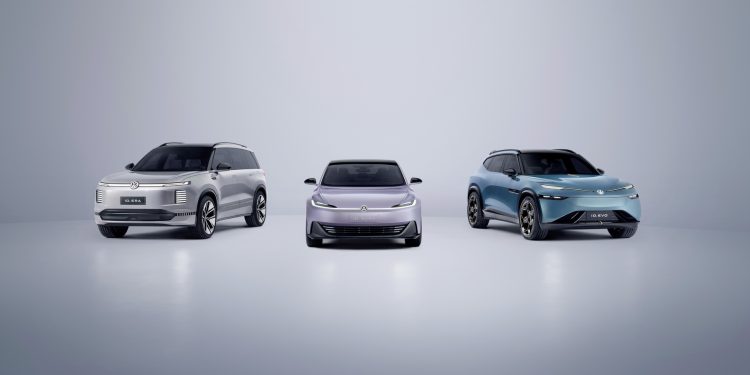Volkswagen concepts take aim at the Chinese market
Words NZ Autocar | Images Volkswagen
Two new SUVs and a compact saloon from Volkswagen take aim at new Chinese buyers.
They major on autonomous capabilities and are part of an ‘In China, For China’ strategy.
Volkswagen is bringing three concept cars to the Shanghai motor show. Aimed squarely at the crucial Chinese market, development time is around 34 months. That is roughly 20 months less than it traditionally needs to take a car from the drawing board to production.
VW developed the trio in collaboration with its joint-venture partners, SAIC and FAW. Another was conceived at VW’s Anhui centre, a JV with JAC. The new vehicles are part of a 30-model line-up that’s due in China over the next 24 months.
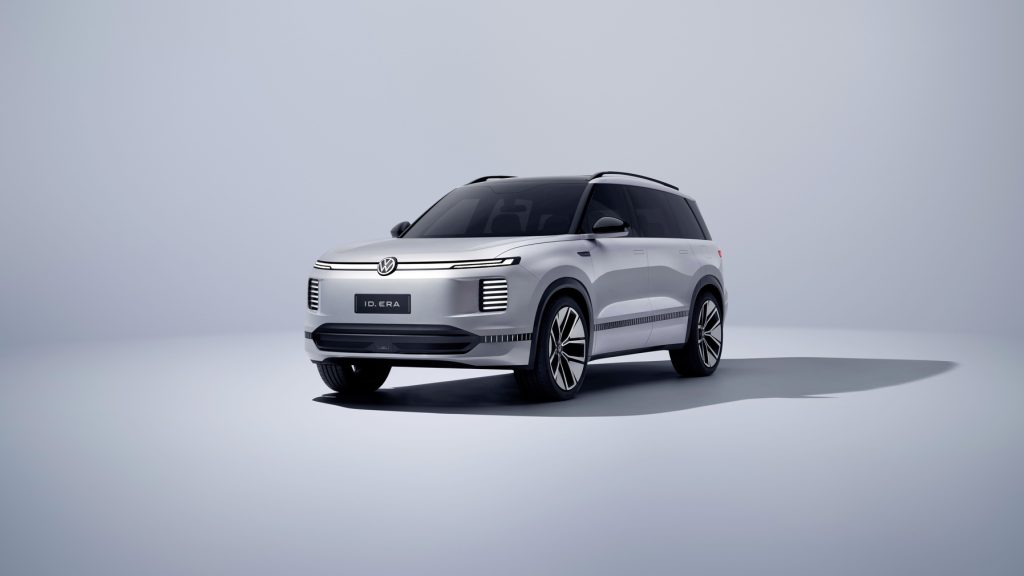
First up is the ID Era, developed with SAIC. It is a forerunner to Volkswagen’s first vehicle with a range-extender powertrain. The three-row seven-seat SUV is like Tayron in that it uses a petrol-burning generator and a battery-electric powertrain. This imbues it with a combined touring range of over 1000km. About 288km of that is by pure EV mode alone.
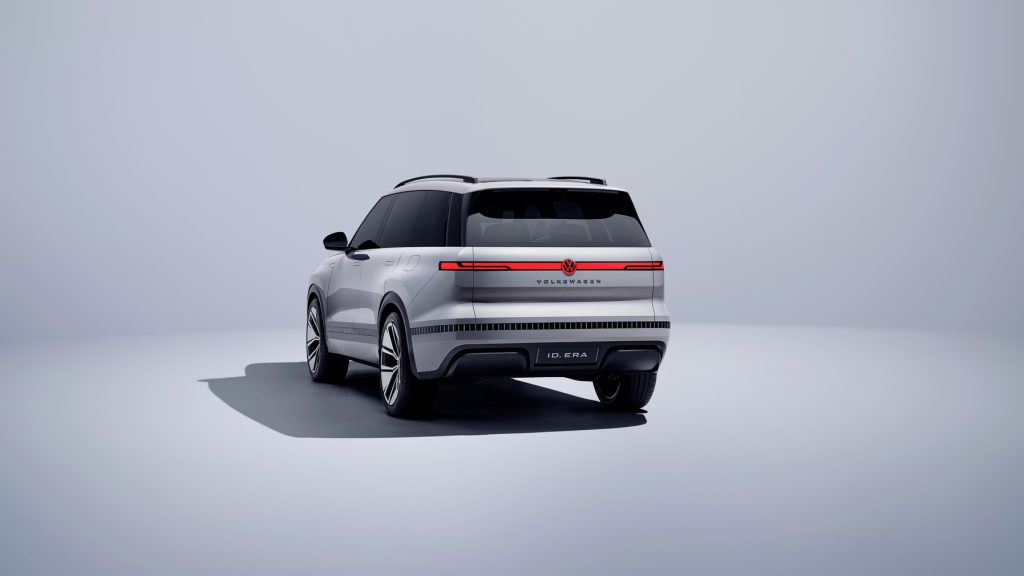
ID Evo is another SUV, this one developed by Volkswagen Anhui. It is closely related to ID Unyx, a Chinese-market version of the Cupra Tavascan. However, it swaps the slick styling for a more conventional hatchback look. But it is still modern to behold, seemingly lower riding, and is an all-electric offering.
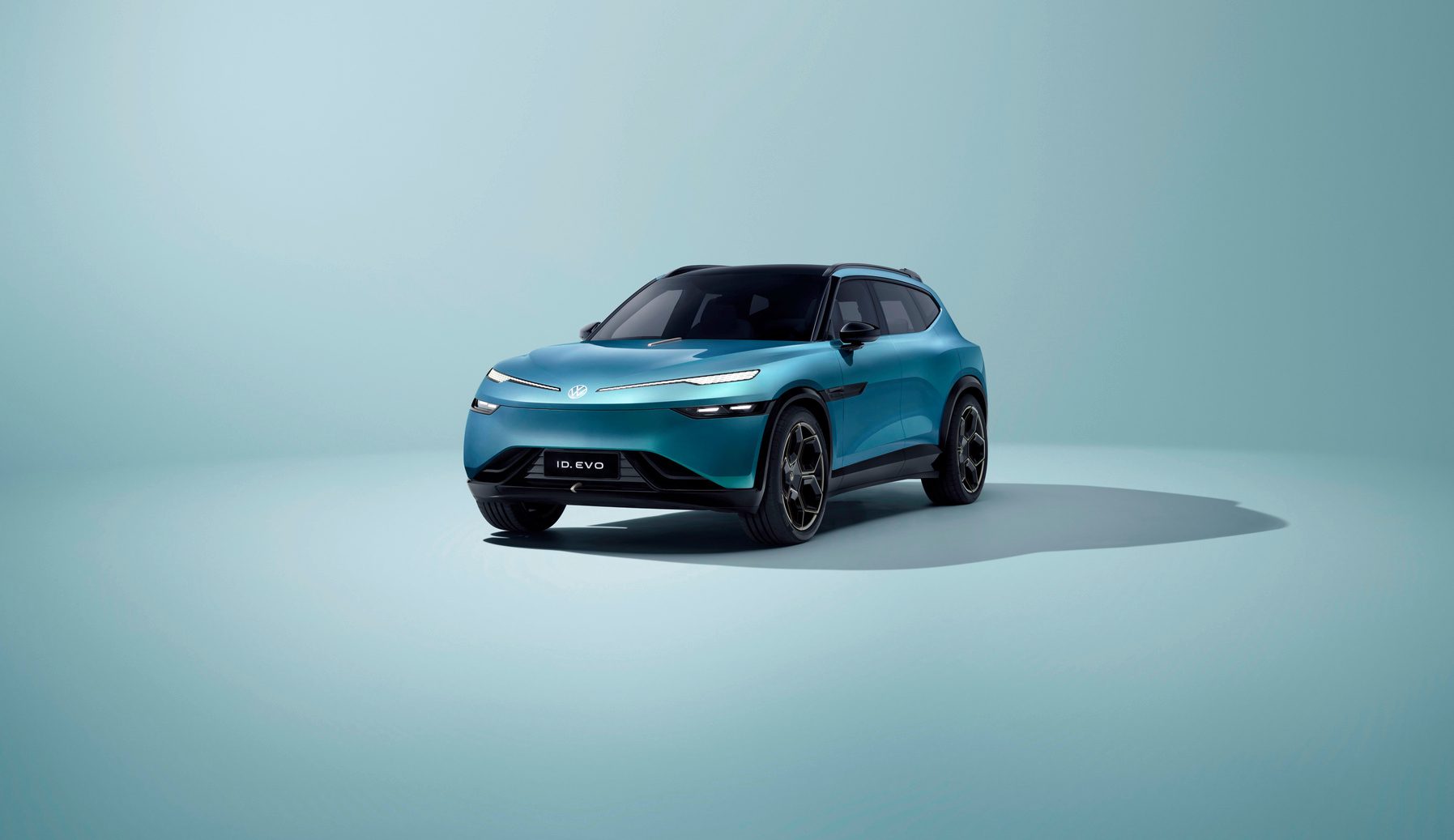
Beneath the skin is an 800V electrical architecture, and a new zonal computer set-up that’s said to enable a range of digital services and over-the-air software updates.
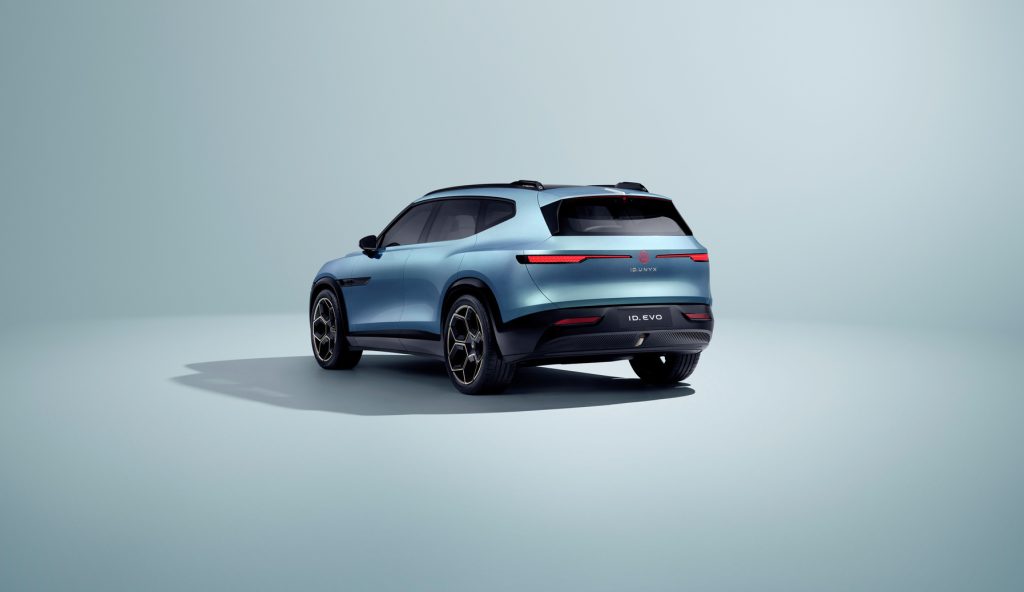
The third model is FAW-Volkswagen’s ID Aura. This is a small sedan similar to Bora in design. The buyer profile is those wanting an affordable A-segment city car. It will be the first car to use the new Compact Main Platform (CMP), aimed at the Chinese market.
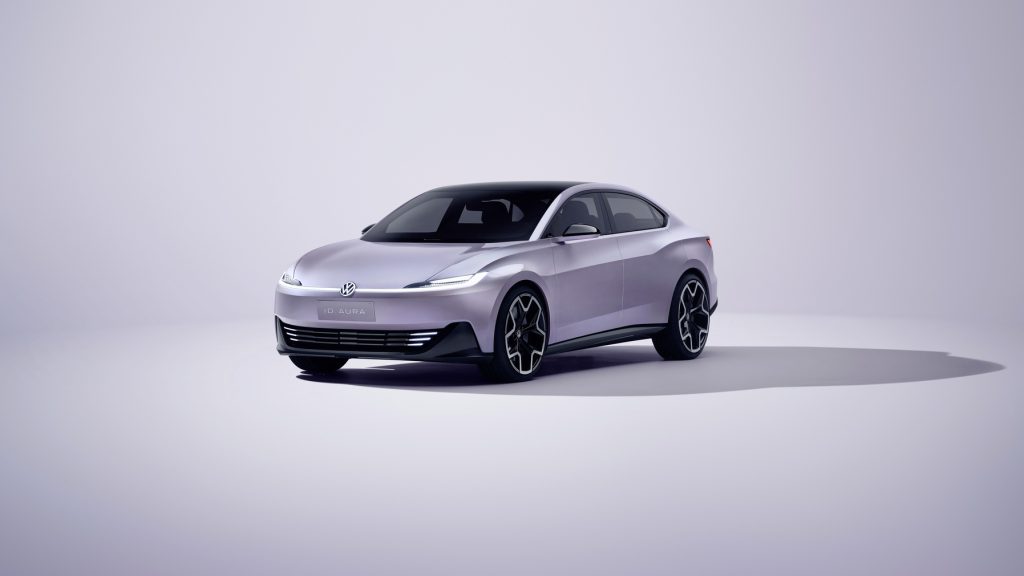
All three are new-energy vehicles (NEVs) which means plug-in hybrids, range-extender EVs or battery EVs.
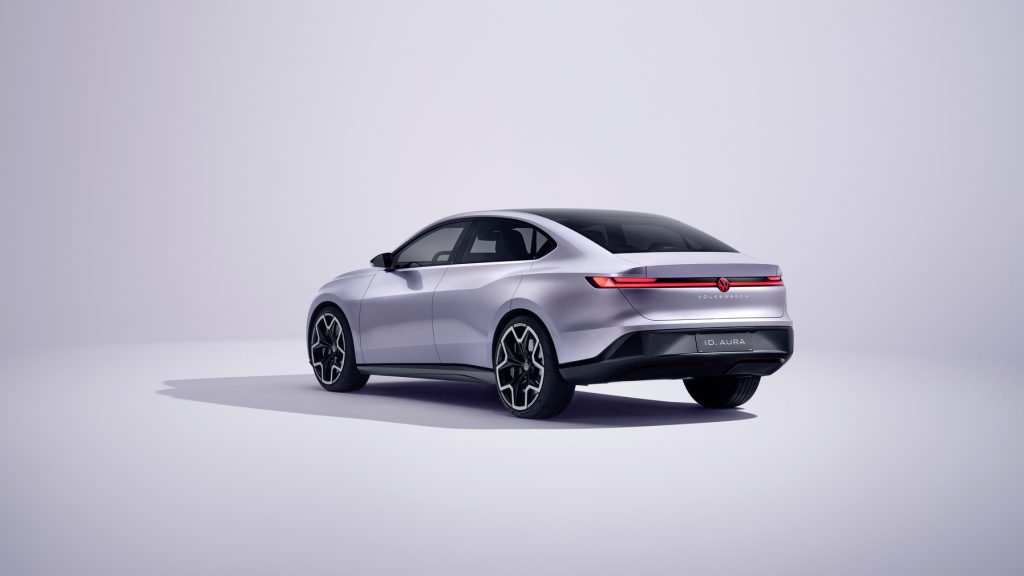
Each car is fitted with an AI-based autonomous driving system capable of driving in level 2++ mode. Here the car takes over most of the controls but the driver retains liability for keeping out of harm’s way.
“In certain situations, cars will be able to drive fully autonomously, including overtaking and turning manoeuvres and independently merging into traffic, with the driver’s supervision,” Volkswagen said in a statement.


